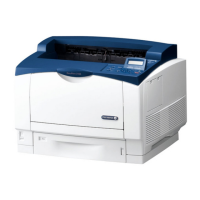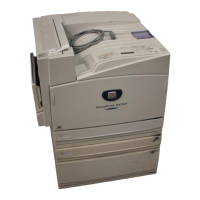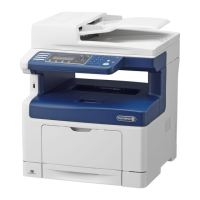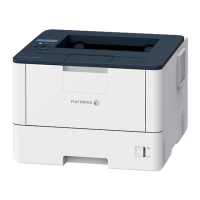A.13 Notes and Restrictions 361
• The following functions do not support IPv6. Run using IPv4. IPv6 does not support the
following protocols:
• Netware IP
• UPnP Discovery
• In the cases below, the user may not be able to cancel or check the status (lpq) of print
jobs requested using LPD when the address of a single machine cannot be determined.
• When IPv4 and IPv6 are in operation simultaneously on the same host
• When multiple IPv6 addresses are in operation simultaneously on the same host
• The IPv6 address may not be entered correctly in the job log. Run using IPv4.
• When performing a search using SMB will pass through a router, enter the addressee
address directly. Response to a multicast is limited to multicasts within the local link
(FF02::1) only.
• In an IPv6 network environment that does not have a DNS server, authentication fails
when the computer name is specified in the SMB authentication SMB server setting.
Directly specify the IPv6 address for the computer name of the authentication server
computer name.
• With DocuShare or some other external access service, operation is improper when an
IPv6 address is specified as the connection destination URL. In the IPv6 environment,
enable the DNS server and specify the destination URL using an FQDN.
• Some features of SMB are not supported (If you attempt to use services with a NetBIOS
name, communication may not be available in some environment).
• IPv6-in-IPv4-tunneling in the machine itself is not supported.
Important
• If [TCP/IP Setting]>[IP Mode] is set to [IPv6], the IPv6-inIPv4-tunneling cannot be
performed.
• If more than one router exist in the same subnet, a communication error may occur.
• In a dual stack environment, some services may cause performance problems depending
on the network settings (for example, when you attempt to set the machine to prioritize
IPv6 in an environment where the Web server is started with IPv4).

